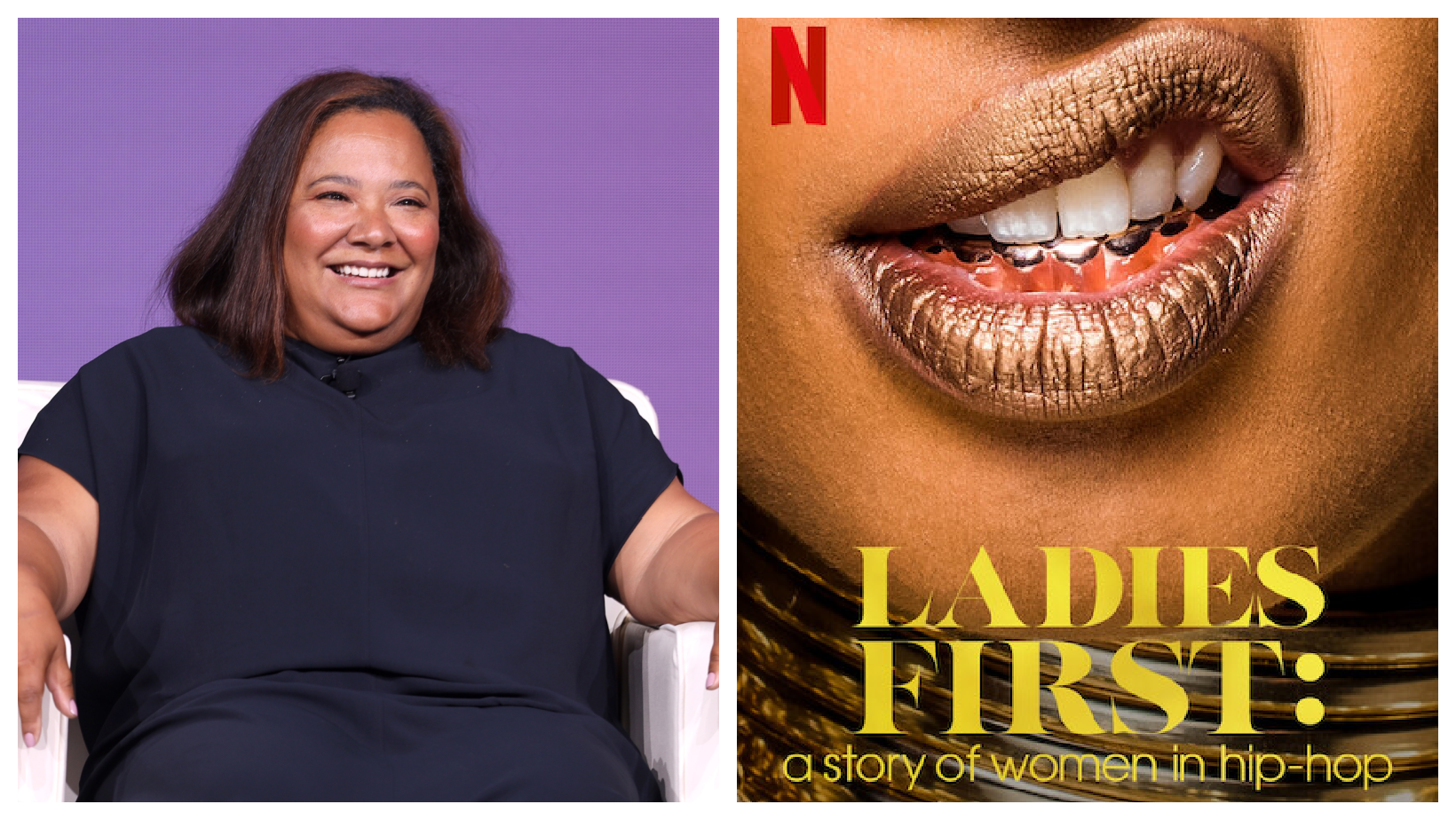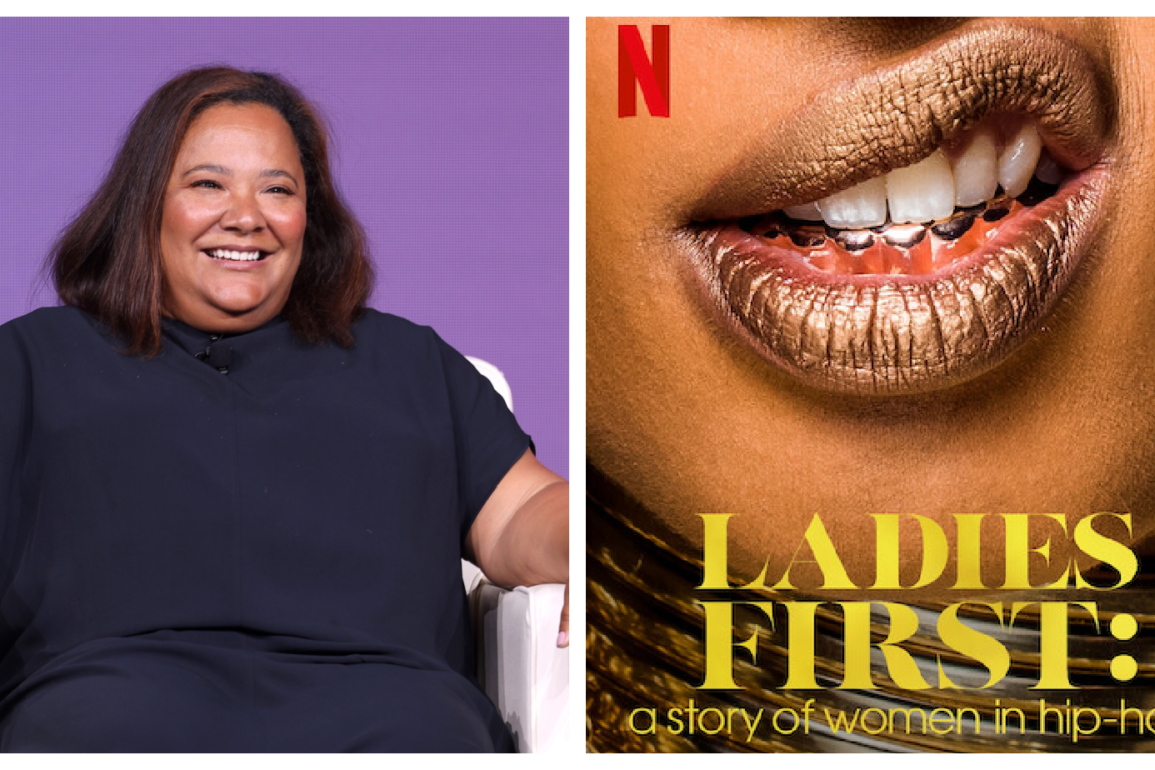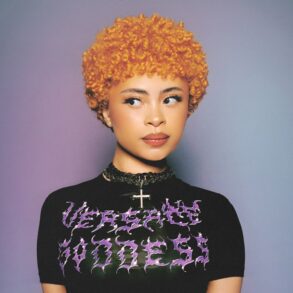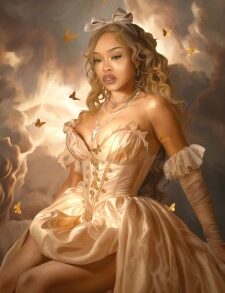
In 1991, dream hampton was one of the first journalists to write about what happened to Dee Barnes. The youngest Black woman to host a national show dedicated solely to hip-hop, Barnes’s burgeoning career was completely derailed after she was assaulted by Dr. Dre. Her career was derailed after being assaulted. One more time. Her career…
Barnes said he attempted to throw her down a flight of stairs, slammed her head against a wall, kicked her, and stomped on her fingers. Dre even corroborated the incident, as he later unapologetically told Rolling Stone, “I just did it, you know. Ain’t nothing you can do now by talking about it. Besides, it ain’t no big thing — I just threw her through a door.” Years later he’s still heralded as one of the greatest figures in hip-hop, has amassed a billion-dollar fortune and was even invited to perform at the Super Bowl in 2022.
Again, 30 years later, hampton is bringing a long-ignored atrocity to the forefront. Not necessarily Barnes’ assault, because it’s been documented before, but the enduring erasure of her contributions to a genre being celebrated for its 50th year of existence.
hampton is one of the executive producers for Ladies First: A Story Of Women In Hip-Hop, a 4-part docuseries currently streaming on Netflix. It features commentary from fellow executive producer MC Lyte, Queen Latifah, MC Sha-Rock, Chika, Kash Doll, Saweetie, Tierra Whack, Latto, and Kash Doll among others.
Article continues after video.
The series thoughtfully attempts to answer critical questions about women’s place in hip-hop, including why their considerable contributions continue to be overlooked. hampton directed the episode that focused on this topic, as well as the inequities Black women in the industry have faced, with Drew Dixon and Barnes as figureheads.
hampton said she was asked to co-executive produce the project by Carri Twigg, co-founder of Culture House, the production company that made the project happen. Smart move on their part since hampton has been one of the most important hip-hop scribes for more than 30 years. In the 90s she was a writer for lauded publication The Village Voice, and Vibe among many others chronicling the good, bad and ugliest sides of the genre. She’s since become of the most prolific directors of our time and ultimately the reason R. Kelly was finally taken down after years of unchecked (and wholly accepted) sexual abuse of minors.
The aptly-timed Ladies First docuseries is joining a litany of other celebratory works commemorating the pervasiveness of hip-hop, it’s cultural importance and the like, but, just a few minutes into watching the show, you’ll find that the doc is a deserved chin check to the genre instead of just a job well done pat on the back.
“I haven’t been keeping up with the hip-hop 50th because I just don’t care that much,” she tells me via Zoom in her signature calm, matter-of-fact tone. She explains that part of the reason for the apathy is her deep understanding and acceptance of its lopsidedness.
“I’m sure Ralph McDaniel has been honored, and he should be,” referring to the founder of the pioneering hip-hop series Video Music Box. “But unlike Ralph, who had a show on a local New York local channel, {Barnes} was on FOX. She had a nationwide show.” And she has yet to be properly honored for her contributions.
Thanks to hampton and the Culture House team, Ladies First delves into the financial predation that is commonplace within the hip-hop music business with Kash Doll, Rah Digga and Saweetie sharing their experiences with exploitative record deals.
“I was making music for two years on my own and it was being taking down by the label,” Kash Doll explains in the docuseries, pointing out that her initial record label contract was a 360 deal, meaning the entity not only takes a share of the artist’s music sales, but also percentages of revenue the artists’ shows, merch, publishing, NIL deals and publishing. Often, artists are left in deep debt to the label before their albums are released.
hampton said she made sure to direct the episode that focused on the inequity women in hip-hop experience because she’s seen it from the beginning, up close, and is observing the full consequences of it right now.
“I’m not even sure if Lil Kim has health insurance and she’s one of our greats,” she said. “I don’t want to be in anyone’s business, but we’ve seen time and time that women rap artists, not all of them, but a number of them end up in jail or broke. That’s just the way the music business was designed. It uses you up and spits you out. And corporate bullying is baked in.”
I asked her, in light of the striking actors, writers and other Hollywood workers aiming to achieve fair pay, did she see the same happening for hip-hop?
She shakes her head.
“I’m sorry to be a pessimist, but I would say no. I’m part of the WGA. We’re protesting work conditions at places that exist, which means movie studios. In music, on the other hand, you barely have record labels anymore. Some of the biggest artists don’t have record deals right now. So, the means of distribution for music, meaning tech, kind of shuddered. That industry, as of a long time ago, is now standing on the last of its legs. So, I’m not saying that the studio system exists the way that it did, but having unions already in place from the time of the SAG is basically a result of something three stars from the silent era organized: Mary Pickford, Charlie Chaplin and Douglas Fairbanks. This was a century ago. So, for hip-hop, and music period, it’s almost too late for musicians and it’s sad.”
I then asked about whether she thought a Me Too movement could take hold of the hip-hop industry since misogyny, sexism and financial inequity go hand-in-hand.
“I don’t know,” she begins thoughtfully. “I’m not sure about a Me Too movement for hip-hop, but I do know that the erasure will be harder to enact now, than it has been in the past. I think we’re past that. I hope so. I think that there’s all this self-documenting that’s happening now. Part of that is because of social media. Cardi B, for example, can get on Instagram and directly speak to the price of groceries, Bernie’s campaign, the equitability of her marriage. Meg? She just posted something super profound about the shooting, so, self-advocacy is now readily available for women in a new way it wasn’t before. My generation of women had these enormous video budgets. So, they now have all these artifacts which are these music videos that are amazing. So that’s not quite an erasure. It’s just that when it comes to retelling these stories, and this happens in everything, like the story of the Black Panthers, or as we come up on the anniversary of Ferguson, we constantly have to remind folks of the role that we play. And that’s patriarchy. That’s what it is. It’s persistent.”
This interview has been edited and condensed for brevity and clarity.







